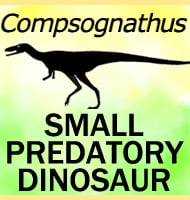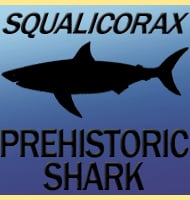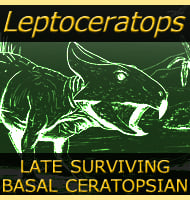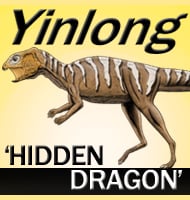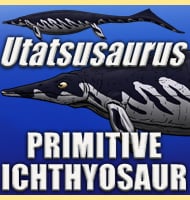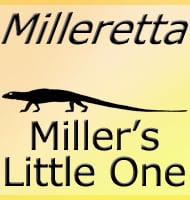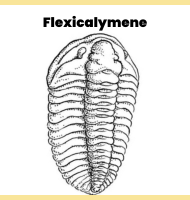In Depth
Teleosaurus is commonly referred to as a prehistoric gharial (sometimes gavial) because of its long but very thin jaws that are lined with lots of small thin teeth. These jaws are perfect for snatching fish from the water as their thin form experiences reduced resistance from opening and closing while moving through the water, something which increases the speed of which they can open. Additionally the smaller teeth are great for seizing fish as their small points focus the force of the jaw closing muscles into high pressure areas (kind of how it’s easy to push a drawing pin into a pin board because the force of your finger pushing is focused upon a tiny pint). Once Teleosaurus had managed to catch a fish between its jaws it probably held it out of the water and tossed it around in its mouth until the fish was in a position for it to be swallowed. This is because while the teeth were well adapted for catching fish, they were not really strong enough to pull it to pieces and with this in mind Teleosaurus was probably restricted to eating smaller fish species that could be swallowed.
The streamlined body of Teleosaurus suggests that it spent a lot of time in the water actively pursuing fish. However this body was still not as well developed as some marine crocodiles such as Metriorhynchus and Geosaurus which also had tail flukes similar to that of a fish on the end of their tails. This suggests that Teleosaurus may have inhabited coastal waters and spent some time out of the ocean, possibly even around atolls and lagoons. Additionally this habitat would see marine crocodiles like Teleosaurus better able to survive in the face of competition from other piscivorous marine reptiles such as ichthyosaurs and plesiosaurs that were common during the Jurassic, but more suited to life in the open ocean.
Further Reading
– Handbuch der Petrefactenkunde, mit einer Einleitung �ber die Vorwelt der organischen Wesen auf der Erde von Dr. Ludwig Choulant 1:1-115. – F. Holl – 1829. – Report on British fossil reptiles, part II. – Report of the British Association for the Advancement of Science 11:60-204. – R. Owen – 1842.

